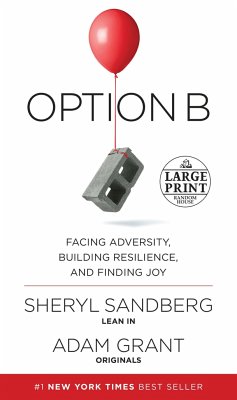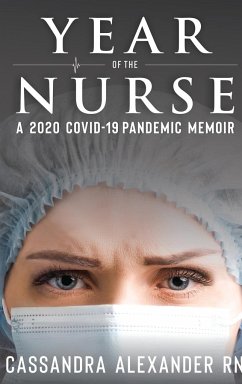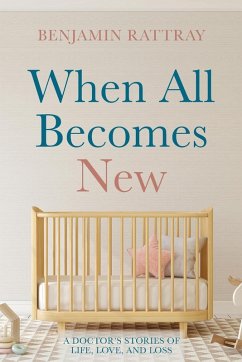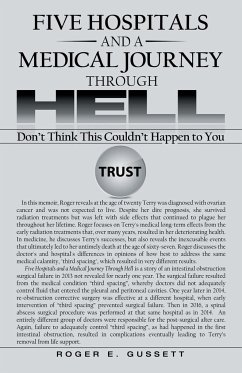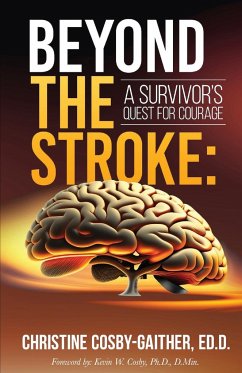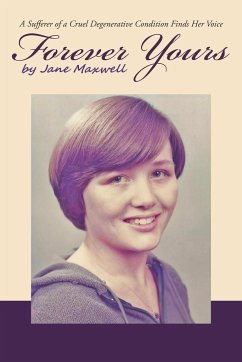
Forever Yours
A Sufferer of a Cruel Degenerative Condition Finds Her Voice

PAYBACK Punkte
8 °P sammeln!
Having been effectively silenced by her illness for many years, Janes ability to communicate was restored in 2011, through technological advances that enabled her to speak via a computer, using very slight movements of her chin. The assistive technology Jane received changed her life dramatically and gave her real hope for the final five years of her life. Being able to communicate again in writing, after so many years, meant everything to Jane. In the midst of losing her voice, her hearing, and the use of her arms and hands, Jane decided to write a memoir: her story, in her own words. Forever...
Having been effectively silenced by her illness for many years, Janes ability to communicate was restored in 2011, through technological advances that enabled her to speak via a computer, using very slight movements of her chin. The assistive technology Jane received changed her life dramatically and gave her real hope for the final five years of her life. Being able to communicate again in writing, after so many years, meant everything to Jane. In the midst of losing her voice, her hearing, and the use of her arms and hands, Jane decided to write a memoir: her story, in her own words. Forever Yours had been the inscription Jane and her husband Alan had chosen for their engagement rings back in 1977. Janes book was to be a love story but with a twist. Together, and in faith, Jane and Alan were to learn that the deepest joy can come from the darkest of places, including in times of trial and pain.








